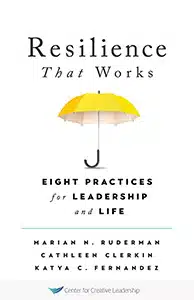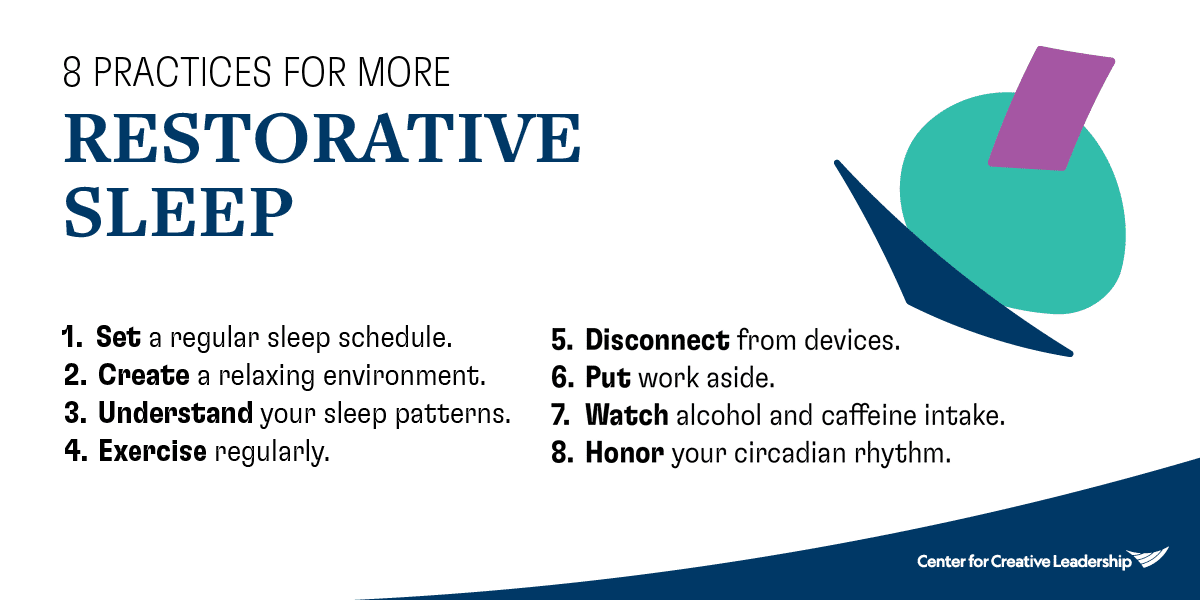Today’s work environment requires a new type of leader. It’s no longer enough for leaders to be qualified and knowledgeable. Leaders must be focused, adaptable, and resilient in order to be effective amid the increasingly distracting and chaotic organizational world.
There’s a clear correlation between the benefits of good sleep and the needs of our current business environment. Restorative sleep is a critical component to reaching optimal leadership potential and the easiest way to improve productivity.
The Impact Sleep Has on Productivity and Leadership
Sleep — or lack of it — can greatly affect your ability to be productive and lead successfully. Neuroscience experts have shown that sleep deprivation impairs health, brainpower, motor skills, and people skills — reducing effectiveness in decision making and problem-solving in all aspects of life.
Sleep deprivation can lead to poor memory and diminished focus and slower responses, making it difficult to make important decisions in uncertain and complex work environments.
Sleep deprivation also impairs mood regulation, often leading to anxiety and hostility, which can make it difficult to engage in the interpersonal processes necessary for leadership. In addition to mood and cognitive impairments, sleep deprivation has also been shown to have significant negative effects on physical health, including higher risks of accidents, diabetes, heart disease, and hypertension.
Yet for many leaders, lack of sleep is almost a badge of honor. At work, people mention how little sleep they’ve gotten, as if this fact demonstrates their effectiveness, dedication, or ambition.
After all, what better way to get ahead of the pack than by putting in the extra hours? The current mainstream business culture reinforces this too, with round-the-clock demands, late-night conference calls, cross-continental travel, and constant interruptions.
Yet, while burning the midnight oil may seem effective in the short term, research demonstrates that in the long term, skipping out on sleep is a sure way to damage your performance.
So while putting in long hours may seem necessary to manage heavy workloads, in the long run, it can make you tired at work. Taking into account the tolls on your cognition, mood, and health, the better way to increase your performance and productivity is to actually work less and sleep more.
Sleep and Productivity — What’s Getting in the Way?
Unfortunately, there are barriers to getting a good night’s rest. Research done by CCL reveals troubled sleep often accompanies issues related to careers.
Our study of 384 leaders showed that many leaders try to sleep but are having trouble doing so. Notably, nearly 1 out of 4 reported that work-related issues kept them awake at least a few nights a week. We also found that 22% analyze or dwell on recent events at work and 20% worry about upcoming events or issues at work.
In the study, the inability to psychologically detach from work was one of the biggest predictors of sleep problems, even when controlling for things like age, individual differences, and lifestyle factors like exercise or caffeine consumption.

Dive deeper into 8 practices that keep you healthy, focused, and functioning with our book, Resilience That Works: Eight Practices for Leadership and Life.
Debunking Common Myths Around Sleep Deprivation and Productivity
2 Key Myths
There are 2 common myths about sleep and productivity, particularly as it pertains to leadership effectiveness.
1. Cutting down on sleep is one way to be more productive.
The belief behind the myth: Sleeping less provides time to progress on our work. Hustle, hustle, hustle at all costs!
Reality: Research suggests that even small amounts of sleep deprivation take a significant toll on our health, mood, cognitive capacity, and productivity. A lack of sleep is associated with preventable accidents, medical errors, and motor vehicle crashes. It diminishes concentration, impairs memory, reduces the ability to communicate, lowers creativity, triggers moodiness, and increases stress.
In contrast to the myth, sleep deprivation can hold you back. In the long term, it does not push you forward.
2. Top executives sleep less than other employees to stay ahead.
The belief behind the myth: High-performing executives with many demands on their plates are sleeping less than the average employee — it’s part of the job. To reach the top levels of an organization, you need to sacrifice sleep. Once there, you need to maintain this lifestyle to keep up with the demands of work.
Reality: We conducted a global survey of leaders’ sleep experiences. On average, people think that the typical high-performing executive gets 42 minutes less sleep than the average employee. The reality is different. In fact, there were no differences in self-reported sleep across all our respondents — consultants, CEOs, managers, and professionals in non-managerial positions all report getting similar hours of sleep.
Executives were also some of the least likely to endorse such statements as, “I think of high performers as energetic people who don’t need much sleep,” or that “putting in long hours and sacrificing rest is a necessary trade-off to get ahead at work.”
When it comes to sleep, the view of the top does not match the view from the top.
Tips for Better Sleep and Productivity
8 Practices for More Restorative Sleep
Sleep isn’t an optional activity — we need it to survive and thrive. Restorative sleep is a critical component to reaching optimal leadership potential. Here are 8 practices to help you achieve restorative sleep and improve your productivity.
1. Set a regular schedule.
Going to bed and waking up at the same time every day (even on weekends) reinforces a consistent sleeping cycle. Set a sleep schedule that allows you to get the hours of sleep you need. Although some people need less and some more, the average adult needs 7 to 8 hours of sleep per day, according to the National Sleep Foundation.
2. Create a relaxing environment.
Adults are great at creating relaxing environments for children, but not everyone realizes that they should do the same for themselves. Adjust the temperature, lights, and sounds in the room so they are as conducive to sleep as possible. Some people have a relaxing ritual such as taking a warm bath or applying lotion. Use earplugs or blackout curtains if necessary.
3. Consider using fitness wearables to understand your sleep patterns.
Most fitness wearables have sleep-tracking functionality that will help you gain insight into how much you’re sleeping and the kinds of activities that impair or promote good sleep.
4. Exercise — but not right before bed.
Exercise promotes good sleep, and is directly connected to leadership effectiveness, but if it’s done too close to bedtime, it can act as a stimulant.
5. Disconnect from your electronic devices.
Park your devices before going to bed. The combination of constant connectivity and blue light is known to interfere with sleeping.
6. Put your work aside before you go to bed.
Ruminating about work won’t help anything. Mindfulness practices and other stress-reduction techniques are helpful for learning how to relax your mind.
7. Keep tabs on alcohol and caffeine.
We all know that caffeine can interfere with rest, but people are less aware that alcohol does as well. Alcohol may help you fall asleep, but it can decrease the quality of your sleep, and wake you up when it wears off.
8. Understand and honor your sleep needs.
We all have a particular chronotype based on our circadian rhythms. Some of us are night owls and do our work best late at night, while others are morning larks and most productive in the morning. Honor your natural inclinations as they relate to your chronotype and put yourself in the best position to thrive. Pay attention to what times of day you feel most alert and plan to do the most difficult or challenging tasks during those “on” times.
Get the most out of your sleep and see what it can do for you physically, psychologically, and emotionally. Then reap the benefits both at work and in your personal life.
HR professionals can also learn about how to make company-wide changes that combat a culture of sleep deprivation in Actions Organizations Can Take to Improve Employee Sleep and Work Performance.
Ready to Take the Next Step?
High-performing leaders understand the connection between sleep and productivity, and they prioritize rest and other resilience and recovery practices. Empower your team to develop more resilient leadership and habits that create conditions for peak performance with our resilience-building solutions, which will help your leaders avoid burnout — and burn bright instead.










